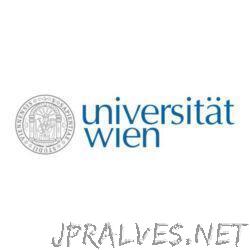Other

“New possibilities for controlling signal routing in quantum information processing Routing signals and isolating them against noise and back-reflections are essential in many practical situations in classical communication as well as in quantum processing. In a theory-experimental collaboration, a team …

“Time evolution of a single photon reversed with a universal rewinding protocol and a quantum switch. In the world around us processes appear to follow a certain time-direction: dandelions eventually turn into blowballs. However, the quantum realm does not play …

“A new technique that combines electron microscopy and laser technology enables programmable, arbitrary shaping of electron beams. It can potentially be used for optimizing electron optics and for adaptive electron microscopy, maximizing sensitivity while minimizing beam-induced damage. This fundamental and …

“Hyperpolarised water boosts signal intensities of proteins, DNA, and membranes A small group of researchers including Dennis Kurzbach from the Faculty of Chemistry of the University of Vienna just published in “Nature Protocols” an advanced NMR (Nuclear Magnetic Resonance) method …

“Quantum computers become ever more powerful, but how can we be sure that the answers they return are accurate? A team of physicists from Vienna, Innsbruck, Oxford, and Singapore solves this problem by letting quantum computers check each other. Quantum …

“Properties of materials are often defined by imperfections in their atomic structure, especially when the material itself is just one atom thick, such as graphene. Researchers at the University of Vienna have now developed a method for controlled creation of …

“The phenomenon of quantum nonlocality defies our everyday intuition. It shows the strong correlations between several quantum particles some of which change their state instantaneously when the others are measured, regardless of the distance between them. While this phenomenon has …

“Vienna quantum physicists measure the smallest gravitational force yet Researchers at the University of Vienna and the Austrian Academy of Sciences, led by Markus Aspelmeyer have succeeded in measuring the gravitational field of a gold sphere, just 2 mm in …

“Artificial intelligence is part of our modern life by enabling machines to learn useful processes such as speech recognition and digital personal assistants. A crucial question for practical applications is how fast such intelligent machines can learn. An experiment at …

“Quantum technologies for computers open up new concepts of preserving the privacy of input and output data of a computation. Scientists from the University of Vienna, the Singapore University of Technology and Design and the Polytechnic University of Milan have …

